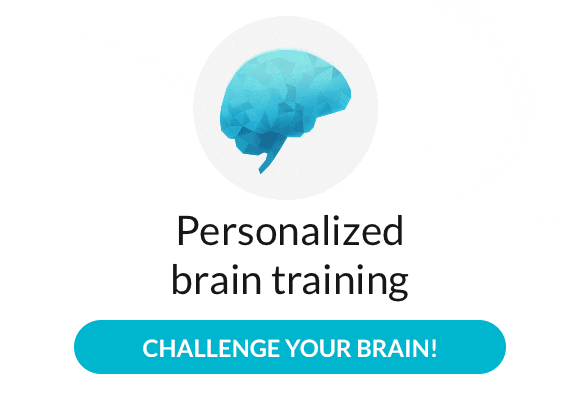
Serotonin, Depression, and Brain Zaps: The Jolting Brain Phenomena
Have you ever been shocked by your outlet when you’re going to plug in a charger? It feels like a little prick on your finger, followed by a very fuzzy sensation. Next, imagine the same sensation happening in your brain … constantly.
This article will introduce the concept of brain zaps – a real phenomenon that happens to an individual who is experiencing withdrawal from a certain kind of medication. Read on to learn more about what brain zaps are, who they affect, and what it means for an individual’s health.
What Are Brain Zaps?
Brain zaps (sometimes called brain shivers, brain shocks, and electrical shocks) refer to electrical shocks or jolting sensations that commonly occur after an individual has discontinued their ssri a serotonin re uptake inhibitor a common antidepressant medications. These symptoms can also occur with benzodiazepines and sleeping pills.
An episode of brain zaps is a brief but quickly repeated electrical shock. This sensation can potentially spread from the head and brain to other parts of the body. In some instances, the zaps are accompanied by vertigo, disorientation, light-headedness, and tinnitus. These sensations and episodes can worsen over time.
Depression and Serotonin
Taking anti-depressants is something that should be fully investigated and discussed with your doctor, loved ones, and other important people in your life. The long term implications these drugs may have on the brain is unclear and the data for longitudinal research has not been analyzed because it is a fairly new drug. The effects this depression drug has on the brain could be very significant as it alters the brains neuro-chemistry to become dependent. While we do not offer medical advice we strongly urge you to discuss this with your doctor and consider if they have your best interest at heart. Neuropsychologists prescribe these medications to deal with very serious cases of depression and should not be taken lightly.
The brain naturally produces serotonin from things in our day to day lives. Getting exercise, eating healthy, interacting, and many other things naturally release serotonin chemicals in your brain to make you feel happy. When you do not do the things that help produce serotonin naturally you may be more likely to feel down and depressed because you can not experience that neurotransmitter naturally. Lots of people decide to take short cuts by popping a pill and feeling good which may lead into very dangerous addictive behavior that can have very detrimental effects on the brain long term.
What Do They Feel Like?
Different people have different descriptions…
- “Flicking cards” through your head
- “Pop rocks” in the head
- Electrical jolts, shocks, pulses of electricity
- Lightning strikes in the brain
- Shivers of the brain
- Strobe light flashing in the brain
What Causes Them?
Brain zaps (also known as Antidepressant Discontinuation Syndrome) are part of withdrawal symptoms. They are considered to be an aftereffect when there is some sort of neurochemical alteration within the brain.
Researchers also think that serotonin is a huge factor in their development. The reason being is because most individuals who experience brain zaps discontinued their serotonergic antidepressants (SSRIs). But it’s also possible that the discontinuation of other psychotropic medications such as benzodiazepines, monoamine oxidase inhibitors (MAOIs), antipsychotics, tricyclic antidepressants, and serotonin-norepinephrine reuptake inhibitors (SNRIs) can be culprits as well.
- Antidepressant withdrawal: When a person stops taking their antidepressant medication, the zaps are a very common sensation to experience.
- Eye movements: It has only been speculated that side-to-side eye movements can intensify and provoke brain zaps. According to Mental Health Daily, they have found that people online have vouched that even looking off to the side can cause them to experience zaps.
- Medication side effects: People who first start on psychotropic medicines can feel them too. The explanation for this would be that the adjustment of functioning in several neurotransmitters causes them.
- Skipping a dose: This may actually prove to be a very “helpful” cause of brain zaps. If an individual is on medication, and they miss a dose, they may feel a sudden brain jolt. That being said, when that happens, they’ll be quickly reminded that they forgot to take their medication.

How Severe Can They Get?
The severity of brain zaps differs from person to person. It all depends on an individual’s physiological makeup, level of anxiety, medication, and other drugs. Brain zaps can be long-term or short-term, lasting from weeks to months, or a few hours to a few days.
- Physiological makeup: The resiliency of an individual’s nervous system and genes play a vital role in those who may or may not experience brain zaps. It is not wise to compare your zapping sensations to that of another person. Typically, when looking at multiple people who experience the electrical shocks in their heads, you will find that duration, severity, and sensation differ from person to person.
- Anxiety: Having very high anxiety can confuse a person as to how intense their brain zap episode really is. A person can trick themselves into believing what they’re experiencing is worse than it actually is. It’s easy to believe there is a more significant health problem at hand. Also, something to keep in mind is that because anxiety stimulates the nervous system, it can disrupt the repairs occurring after withdrawal.
- Medication & Other Drugs: As mentioned in previous bullet points, the types of medication a person is taking can be the reason a person experiences very severe zaps. Prozac and other supplements might help individuals cope with their brain zaps.
Studies On Brain Zaps
Scientists have boosted memory skills in healthy volunteers by zapping their brains with weak electromagnetic pulses.
“This memory network that we targeted has been shown to be impaired in a variety of disorders,” says lead investigator Joel Voss, a neuroscientist at Northwestern University.
He used a transcranial magnetic stimulation that involves a wand emitting a changing magnetic field. This wand can induce changes in electrical patterns of nearby neurons when pressed against the skull.
Researchers stimulated an outer layer of the brain called the lateral parietal cortex which is strongly related to the hippocampus, an important brain area for memory. The researchers stimulated this area in 16 adult volunteers for five consecutive days. Each stimulation session lasted 20 minutes, during which volunteers would feel 2 seconds of pulsing, then 28 seconds of nothing, then 2 seconds of pulsing.
Another study on brain zaps established that an electrical-activity pattern in a key brain region predicts impulsive actions just before they occur.
Using mice, researchers supplied a small electrical pulse to the brain region in question (called the nucleus accumbens). As soon as the electrical signature manifested, it prevented the mice from overindulging in fatty food. However, it didn’t affect their intake of normal food, their social behavior, or other physical activity.
Brain scans of the volunteers before and after their week of stimulation showed that the treatment significantly increased connectivity between the hippocampus and four other areas. This included the lateral parietal cortex. So it seems that stimulating one part of the hippocampal memory network (the lateral parietal cortex) led to more robust connections in other parts of the same network.
Treatments For Brain Zaps
Simple changes to someone’s daily routine can be very effective in helping them cope with their brain zaps. Because brain zaps don’t pose any real threat to an individual, there shouldn’t be much to worry about.
- Time will take care of it: Brain zaps can be painful, frustrating, and an experience you wouldn’t wish on your worst enemy. But they do eventually subside. The brain is fascinating in the way it can repair itself over time. Once neurotransmission completely restores itself, poof goes the brain zaps! It’s always an important thing to remember: Everything is temporary.
- Do NOT quit cold turkey: It may or may not work for some, however, it is not advised. Quitting your antidepressant medication abruptly can actually increase the intensity of brain zaps. Instead of quitting cold turkey, it is suggested that a person slowly taper off their medication.
- Don’t forget to take your medication: Make sure you don’t forget to take your medicine. You’re trying to alleviate yourself from the painful sensation, not make it worse.
Do you, or anyone else you know suffer from brain zaps? Are you currently taking antidepressants and are worried about this phenomenon occurring? Hopefully, now you feel a bit more prepared for what to expect if this happens!
References
Consumerhealthdigest.com (n.d.). What are brain shivers and how to cope with it?
Mentalhealthdaily.com (n.d.). Brain Zaps: Causes & Treatments for electrical shock sensations
Pollack, J. (2011). Fireworks or Brain Zaps?















